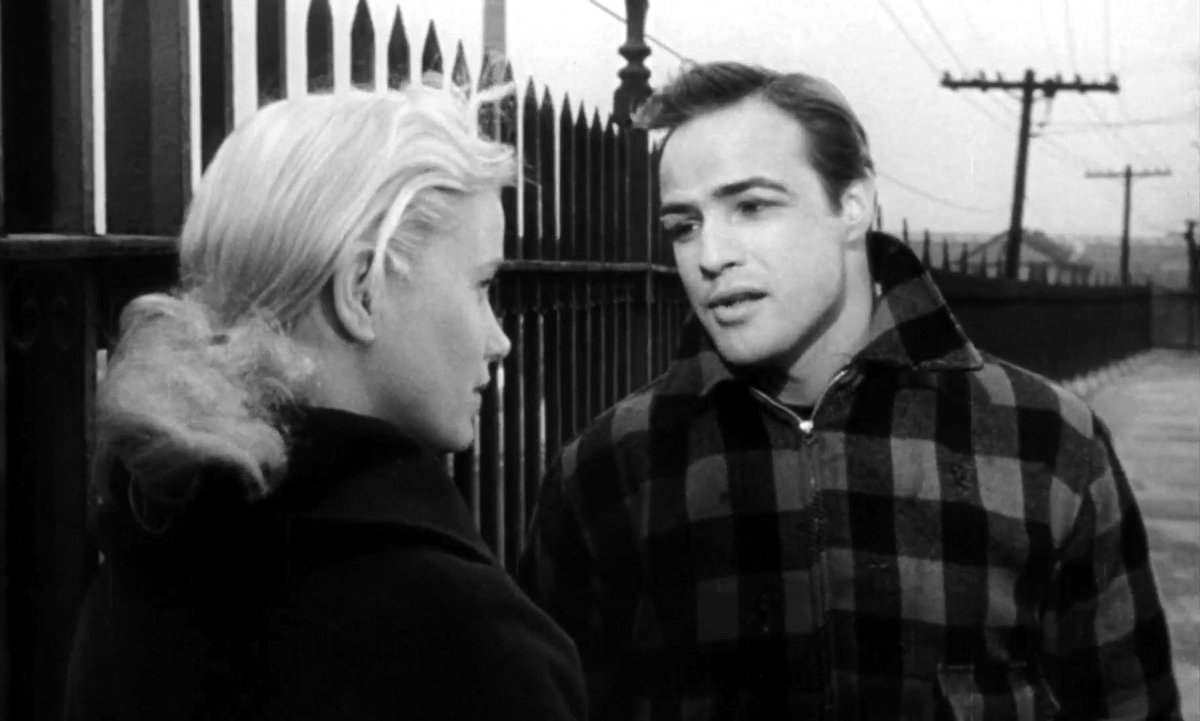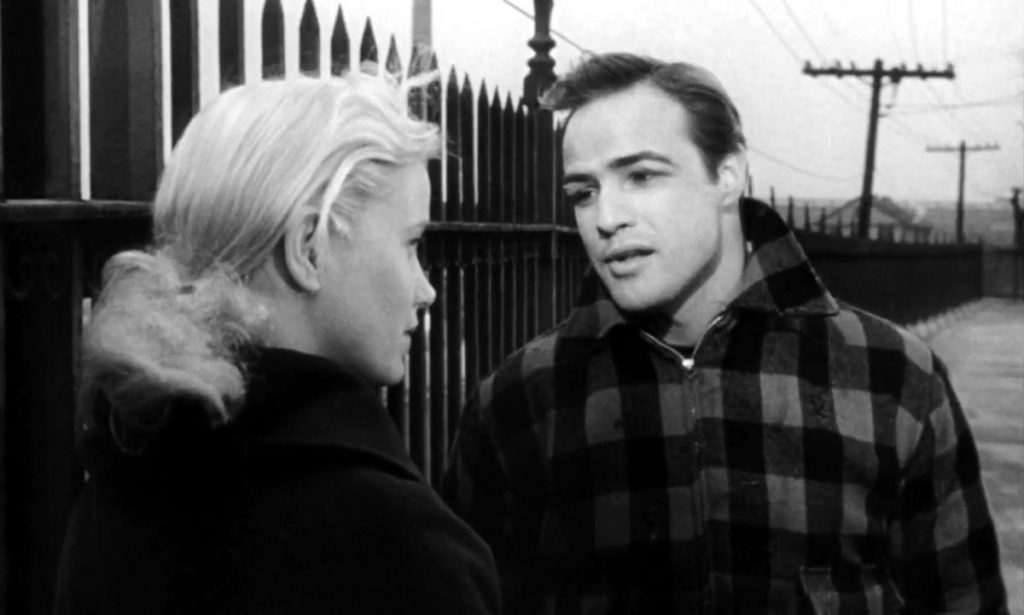

It has been a slow week for cinema, which makes it a good time to introduce you to a classic if you don’t know it already, On the Waterfront.
This 1954 film is about the moral awakening of Terry Malloy, a dock worker and reluctant hoodlum in mid-twentieth century New York City, who finds himself caught in the undertow of the local underworld.
Played with bare-fisted tenderness by Marlon Brando – one of the era’s iconic leads who went on to take the titular role in The Godfather – the film opens with Terry unwittingly helping some thugs knock off one of the young men in the neighbourhood. The deceased turns out to have been one of the few labourers brave enough to speak up about the corrupt practices of the local mob-run labour union, and when Terry realizes what he’s done, he retires to the rooftops and tends to the dead man’s coop of racing pigeons.
Set against a backdrop of raw urban poverty, this act of simple affection contrasts with the blunt violence of Terry’s criminal associations, and these set the tone and the stakes for the young man’s coming crisis.
An engaging, enjoyable film that has stood the test of time, On the Waterfront includes one of classic cinema’s most celebrated lines, “I coulda been a contender.” It also includes one of its strongest, most interesting priests.
After witnessing the reticence and resignation amongst his parishioners in the face of organized crime, Father Barry resolves to stand alongside anyone with the courage to stand up and speak out. The one dock worker who decides to talk gets killed by thugs in a workplace “accident,” and Father Barry responds with what is probably cinema’s greatest sermon on social action.
“Some people think the Crucifixion only took place on Calvary,” he preaches from the belly of a whisky freighter. “They better wise up.”
Every time the mob exploits, abuses, or murders a worker, he proclaims to a mixed crowd of mobsters and taciturn day laborers, that’s a crucifixion. And every time somebody keeps quiet about it, that’s like the Roman soldiers who stood by and watched it happen.
Christ is down here on the waterfront, Father Barry continues. He sees honest folks getting passed over, and crooked folks caring more about an easy dollar than about their fellow man.
Yet, and here he quotes Jesus Christ, “if you did it to the least of mine, you did it to me.” Speak the truth, stand together, and trust God, he concludes, because these are the only things that are going to improve your situations.
Like an Old Testament prophet or even Christ before him, Father Barry’s words do not seem very effective straight away: the only responses he gets in that moment are scornful violence from a few and eye-averted attention from others. But he does succeed in throwing down the gauntlet between the onlooking criminal element and their prey, as well as in identifying the heroism it will take to change things.
There is an added layer of interest from the fact that this character is based upon a real priest.
Undertaking his own research into the corruption of the New York dockyards which was making sensational headlines at the time, scriptwriter Budd Schulberg found very few longshoremen who were willing to talk. And then he met Father John Corridan.
A Jesuit known locally as “the waterfront priest,” Father Corridan ran a school which instructed the wharf workers in economics and led strategy sessions in trade unionism. Interestingly, his teaching in that setting was not explicitly religious: rather, what it offered was practical guidance based upon principles drawn neither from dog-eat-dog capitalism nor Communist ideology but from fundamental Christian convictions about the dignity of man.
The shipyard sermon in the film draws much of its content from Father Corridan’s real life preaching at the docks.
Like many other great works of art, On the Waterfront not only offers a reflection of its time but also of a humanity that transcends it. The timeless story of a social outsider who struggles to carve out a place in a perilous world, Terry Malloy might stand in for the Christian who “in this world has no lasting city.”
Enmeshed between the enticements of this-worldly compromise and an unsilenceable conscience, Terry’s plight offers a parable of the universal moral struggle in a world still marred by sin.
Like him, we may always feel at least a little bit like this world is not our home, but if Terry’s story is anything to go by, this need not stop us from fighting the odds to make it a little bit more like one.
